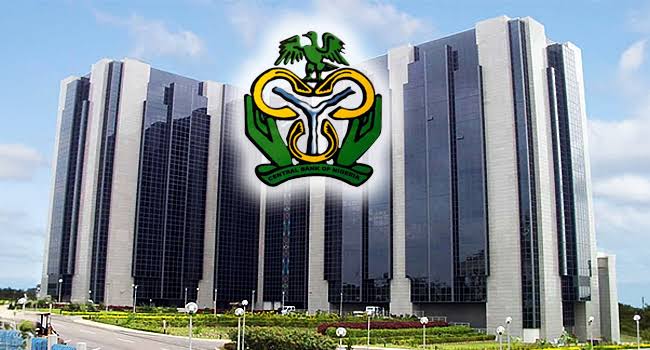The Central Bank of Nigeria recently imposed hefty fines totaling N1.35billion on nine Deposit Money Banks for failing to ensure cash availability via their Automated Teller Machines during the Christmas season.
Each bank was fined N150 million for non-compliance, in line with the CBN’s cash distribution guidelines, following spot checks on their branches.
The affected banks included Fidelity Bank Plc, First Bank Plc, Keystone Bank Plc, Union Bank Plc, Globus Bank Plc, Providus Bank Plc, Zenith Bank Plc, United Bank for Africa Plc, and Sterling Bank Plc.
The enforcement action followed repeated warnings from the CBN to financial institutions to guarantee seamless cash availability, particularly during periods of high demand.
Prior to the sanction, CBN had warned commercial banks to strictly comply with cash distribution policies.
In September, 2024, the CBN announced plans to penalise banks that failed to dispense cash via ATMs as part of efforts to ensure adequate cash circulation.
Communication with the banks revealed that the fines would be debited directly from their accounts with the apex bank.
The acting Director of Corporate Communications at the CBN, Hakama Sidi Ali, confirmed the development, noting that “Ensuring seamless cash flow is paramount to maintaining public trust and economic stability.
“The CBN will not hesitate to impose further sanctions on any institution found violating its cash circulation guidelines,” she added.
Although the fine is a little belated, it is still a step in the right direction as it would serve as a deterrent to other banks.
It is wrong for banks to withhold cash from their ATMs, especially at a time when the CBN is enhancing its financial inclusion policy.
Having ATMs is one of the ways to diversify the payment system and ensure funds reach all parts of the country regardless of location.
However, it is often the case that when people visit ATMs, there is no cash to dispense. Meanwhile, PoS operators tend to issue money at exorbitant costs, which is unfair to the public.
The penalty accorded to the banks is appropriate; the various banks should allow the money to adequately circulate within the system.
The regulator should, oftentimes, discipline the banks when they breach their rules.
The banks should not be hoarding cash and diverting them to the PoS machine outlets while the citizens are suffering.
This is wrong and must not be condoned by the regulator.
At the heat of the cash crisis last month, CBN had urged bank customers to report violations of the guidelines through specified emails.
This followed reported cases of long queues in banks across the country for cash withdrawals.
Many banks could only dispense between N5, 000 and N20, 000 cash limits to each customer, daily, a situation that worsened the economic hardship during the Yuletide.
This was in spite of repeated warnings by the apex bank that it would not hesitate to impose hefty fines on any of the banks violating its cash circulation guidelines. According to CBN guidelines, the daily withdrawal limit for Point of Sale operators is N1.2 million.
Despite the fact that currency in circulation reached a record high of N4.5trillion in October, 2024, a 4.7 per cent increase from that of September, 2024, it is unfortunate that millions of Nigerians are still experiencing acute cash crunch at the banks and ATMs.
The paradox reflects a deeper dysfunction in Nigeria’s financial system. The cash scarcity also exposes systemic failures in currency management, as well as trust deficit in digital payment systems and the ineffective enforcement of monetary policies of the CBN.
While the sanction might have served as a deterrent, it remains more reactive than proactive. It only addressed the symptoms instead of the structural and fundamental issues that often lead to cash shortages across the banking system.
The same situation happened a few months before the 2023 general elections. Going forward, the CBN should embrace a multifaceted approach that should include the implementation of a robust monitoring mechanism to track the flow of currency and prevent hoarding and diversion of cash.
“It is wrong for banks to withhold cash from their ATMs, especially at a time when the CBN is enhancing its financial inclusion policy.”
As the regulator of the banking industry, the CBN should not lose sight of its primary duty, which is to ensure the stability and liquidity of the financial system.
The frequent cash scarcity, especially during the festive season, suggests either an unwillingness or inability on the part of the CBN to decisively rein in defaulting banks until the crisis worsens.
Undoubtedly, this is partly as a result of poor monetary policy, weak oversight and even strained interbank liquidity.
The present management of the CBN should do more than it has already done in its reforms, some of which have not addressed the basic monetary issues that hamper economic activities.
Sometimes, the CBN’s failure to strictly enforce its mandate erodes public confidence in the banking system.
Trust, no doubt, is the cutting edge in the financial services sector. Liquidity crisis, which has persisted for months now, has had its toll on businesses and the economy in general and undermined financial inclusion, making it harder for businesses to thrive.
Government’s huge deficits and soaring inflation have increased the propensity for people to hold more cash than before.
The CBN should henceforth ensure that banks have adequate cash supply. And where there is a shortage, banks should offer prompt explanations.
Also, the apex bank should consider increasing money supply and negotiating a new payment system.
Nigerians should also reduce non-essential spending. In addition, CBN’s oversight function needs to be enhanced and strictly enforced.

